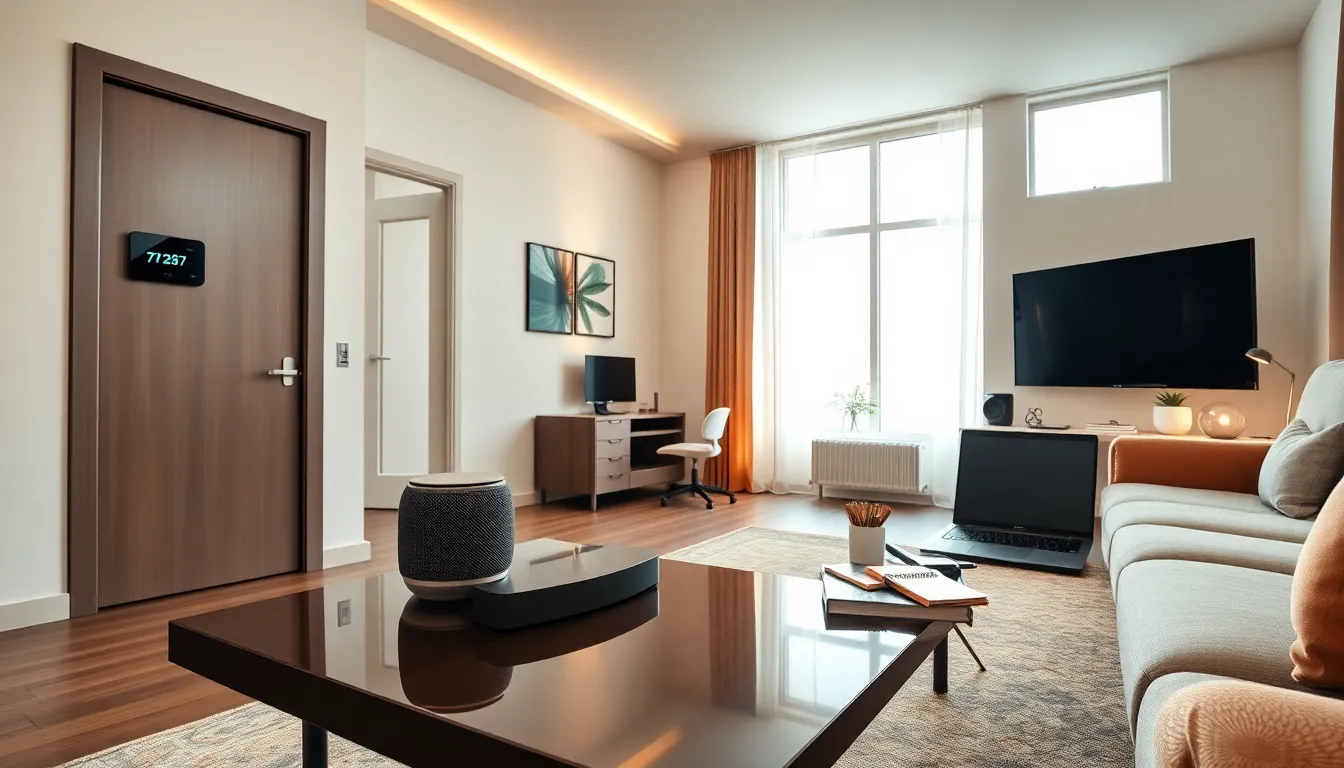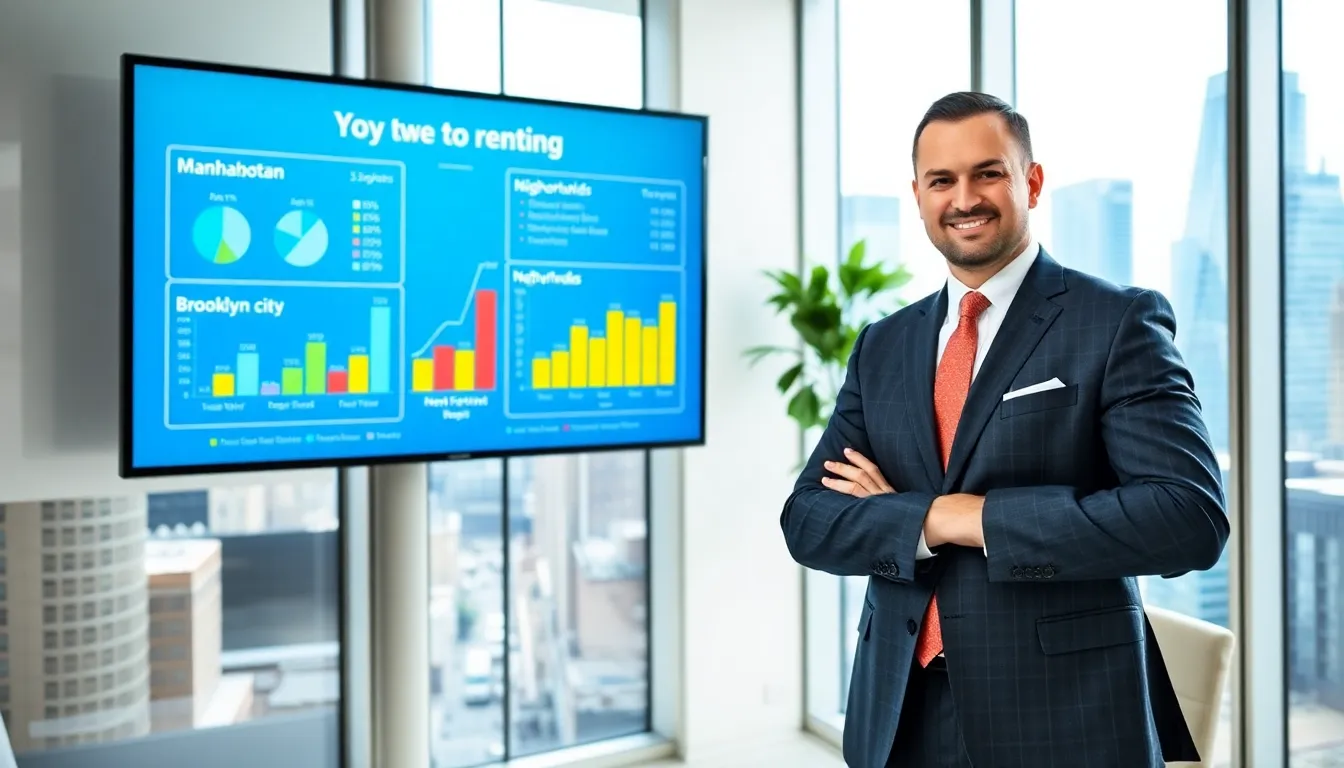Deciding between renting and buying a home can feel like choosing between a cozy fire and a comfy couch, both have their merits. Unfortunately, there’s no one-size-fits-all answer. One person’s dream home could be another person’s financial nightmare. So, let’s jump into the nitty-gritty of renting versus buying, with all the pros, cons, and a sprinkle of humor to lighten the mood. After all, who said finances had to be boring?
Table of Contents
ToggleUnderstanding Renting and Buying

When it comes to housing, understanding the difference between renting and buying is crucial. Renting usually means you’re leasing a property, often without the long-term commitment of a mortgage. Your landlord is your BFF (at least, until you pay late). On the flip side, buying means you own a property, building equity while potentially decorating with your latest art obsession, because who doesn’t want a neon giraffe in the living room? There are nuances to both, and it’s more than just financial, consider lifestyle, responsibilities, and your love for spontaneous late-night moves.
Knowing the fundamentals helps to make an informed choice. Now, let’s dig deeper into why renting might feel like a breezy summer day but can also come with its own set of challenges.
Pros of Renting
Flexibility and Mobility
Renting offers incredible flexibility. If they decide to move for a new job or follow their heart across the country, renters usually can do so without the burdensome task of selling a home. Need to relocate quickly? Just pack up those boxes and call the moving company. Renters can embrace life’s unpredictability with open arms.
Lower Initial Costs
One of the biggest perks of renting is the lower upfront costs. No need for a hefty down payment or closing costs. Typically, they might only need a security deposit and the first month’s rent. Keeping those finances lighter than a feather makes renters happy, especially for those still paying off their student loans.
Maintenance and Repairs
Who likes dealing with leaky faucets or broken air conditioning units? Not many. In a rental situation, maintenance usually falls on the landlord. Renters simply call up their landlord and wait while their hair-wrenching problems are addressed. That peace of mind can be priceless.
Cons of Renting
Lack of Equity Building
While renting provides great flexibility, it has a significant drawback: renters aren’t building equity. An endless cycle of monthly rent payments can feel like throwing money down a well, with no return. Meanwhile, homeowners snag that sweet equity while appreciating over time. For the long-term horizon, renters might find themselves wishing they’d taken the plunge.
Limited Control Over Living Space
Renters can sometimes feel like they’re living in someone else’s dream. Want to paint the walls pink or hang that coveted mural? Not so fast. Many leases come with restrictions that can stifle creativity. This lack of control can make the living space feel temporary and less personal.
Rent Increases and Lease Terms
And then there are the lease agreements. Landlords may raise rents annually, leaving renters at the mercy of fluctuating market conditions. What once felt like a cozy corner could quickly turn into an overpriced studio, and that’s not fun. Renters must navigate this uncertainty while hoping their landlord plays nice.
Pros of Buying
Building Equity Over Time
A major draw for buyers is the potential to build equity over time. Each mortgage payment contributes to owning more of their space. After years of hard work, that charming front porch may transform from rented space into a solid financial asset. It’s a beautiful feeling, especially during family barbecues.
Stability and Ownership
Homeownership provides a sense of stability that renting often lacks. No more concerns about lease timelines or landlords deciding to sell. Embracing the freedom of living in their own space can feel fantastic, especially on those chilly winter nights when settling in feels cozy.
Potential Tax Benefits
Another unique advantage of buying includes potential tax benefits. Homeowners may be eligible to deduct mortgage interest and property taxes. Of course, tax codes vary, but who wouldn’t love a little extra cash back while contributing to their community?
Cons of Buying
Higher Upfront Costs
But, buying a home does come with a hefty price tag. From down payments to closing costs, it’s not pocket change. Buyers often shell out a good chunk of change upfront, which can feel like a financial punch to the gut for some. This high barrier may discourage potential homeowners from getting started.
Long-Term Commitment and Market Risks
Buying is undeniably a long-term commitment. It can sometimes look like a roller coaster, with property values moving up and down based on market conditions. A home isn’t just a place to live: it’s also an investment that may appreciate or depreciate unexpectedly, yikes.
Ongoing Maintenance Responsibilities
Let’s not forget about ongoing maintenance responsibilities. When the water heater breaks or the roof needs repair, there’s no landlord to rescue them. Buyers must be ready for both the minor inconveniences and the major repairs that come with homeownership. They should really have a handyman on speed dial.
Making The Right Choice For You
Evaluating Your Financial Situation
Making the right choice comes down to self-reflection. Evaluating your finances, income, savings, debts, will significantly impact the decision. While renting may keep costs low, buying can build wealth long-term. Understanding their current financial situation helps in making the best choice.
Assessing Lifestyle Preferences
Lifestyle preferences also play a role. Some thrive in urban centers, relishing mobility, while others yearn for stability in the suburbs. Recognizing personal values, lifestyle choices, and comfort levels with commitment forms the cornerstone of this decision. Also, future plans may differ, affecting whether renting or buying feels more appealing.
Considering Long-Term Goals
Finally, considering long-term goals makes this journey clearer. Are they dreaming of settling down and raising a family in their own backyard? Or does living in a trendy downtown loft sound more enticing? Defining these goals helps inform which path better aligns with their aspirations.






